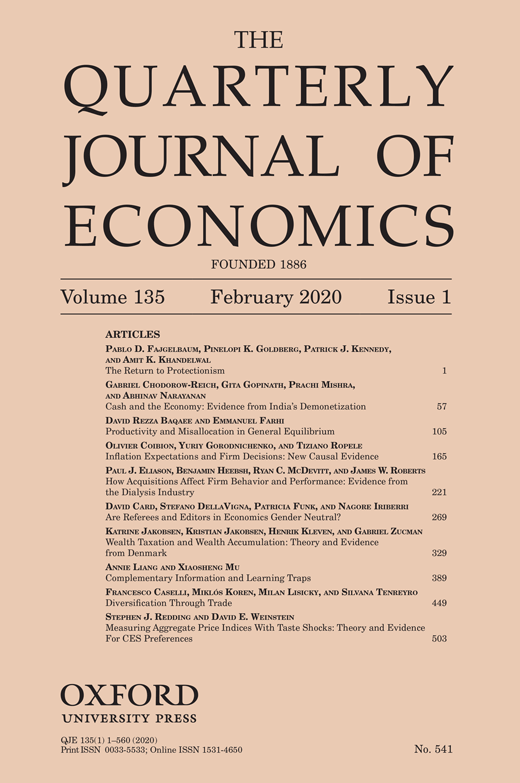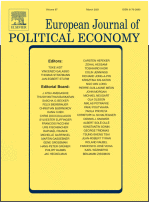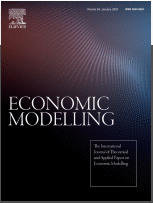
In this study, the relationship between trade openness, renewable and non-renewable energy consumption for “Top Emerging Countries of Bloomberg” in 1980-2015 period is investigated.
Diversified human activities and inappropriate economic growth strategies have induced a trade-off between economic growth and environmental degradation worldwide. Consequently, the aggravating environmental concerns have warranted regulations to be enforced for safeguarding the welfare of the global environment.

We explore the interplay between trade-invoicing patterns and the pricing of safe assets in different currencies. The theory thus provides a unified explanation for why a dominant currency is so heavily used in both trade invoicing and in global finance.

We study how the opportunity to trade in trash might influence the equilibrium outcome when the tax on the externality is determined by a political economy process.

In this paper, we develop the additional compliance requirement indicator (ACRI) to quantify the extra regulatory requirements that an exporter may face when serving the foreign country’s market. The higher the value of ACRI, the greater the difference between the sets of technical measures in the destination and origin countries.

Since the 1960s, non-tariff measures (NTMs) have been continuously replacing tariffs as the core element of trade negotiations. In the 21st century, they take centre stage in all EU trade agreements with industrialised and emerging economies.

Analyzing the impact of domestic labor regulations on international trade is relevant, in part, because (i) trade negotiations may increasingly constrain countries’ ability to implement trade policies and (ii) concerns over international competition driving countries towards a ‘race to the bottom’ in labor standards are rampant.

Economic growth, accompanied by rising energy demand in ASEAN countries have been unprecedented over these few years. On the other hand, the energy consumed in the ASEAN region is predominantly non-renewable, which could have implications for sustainable development.
